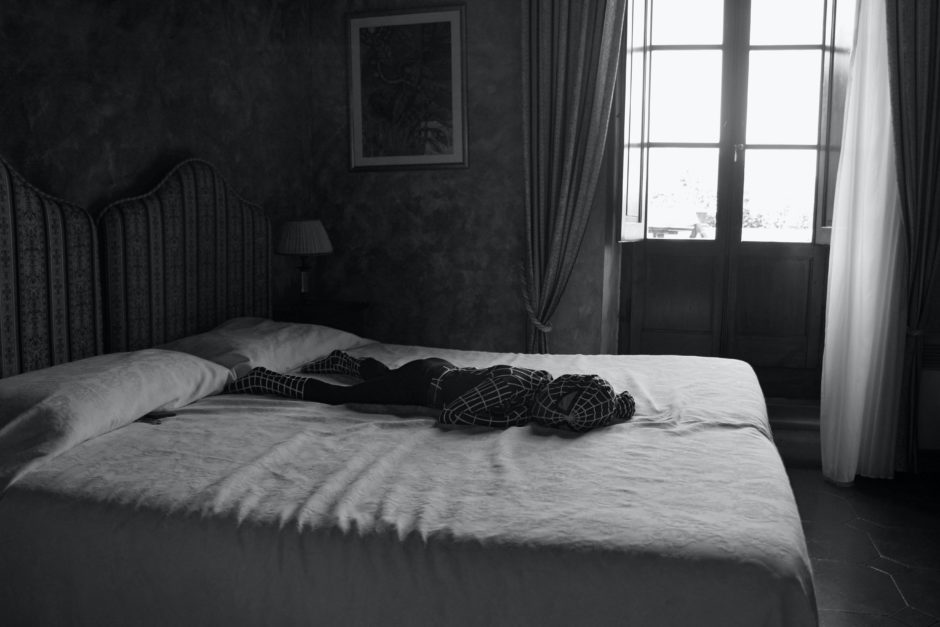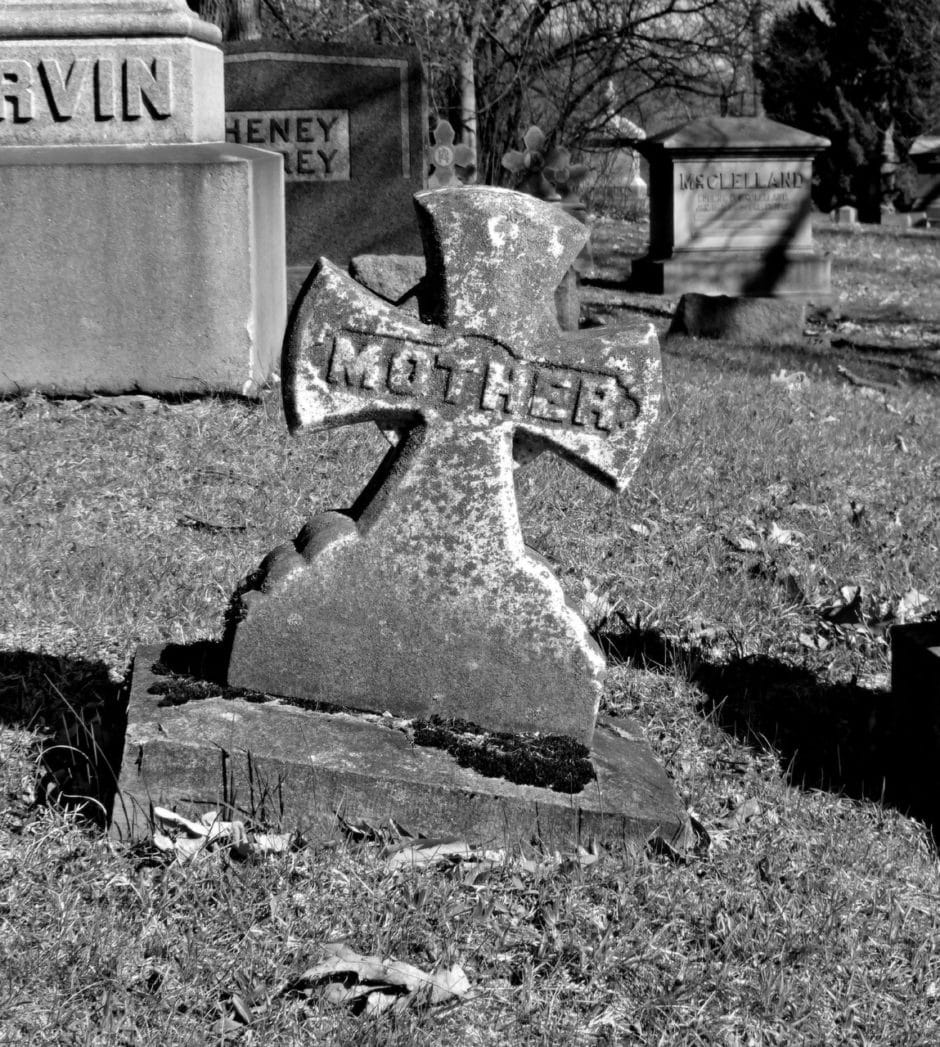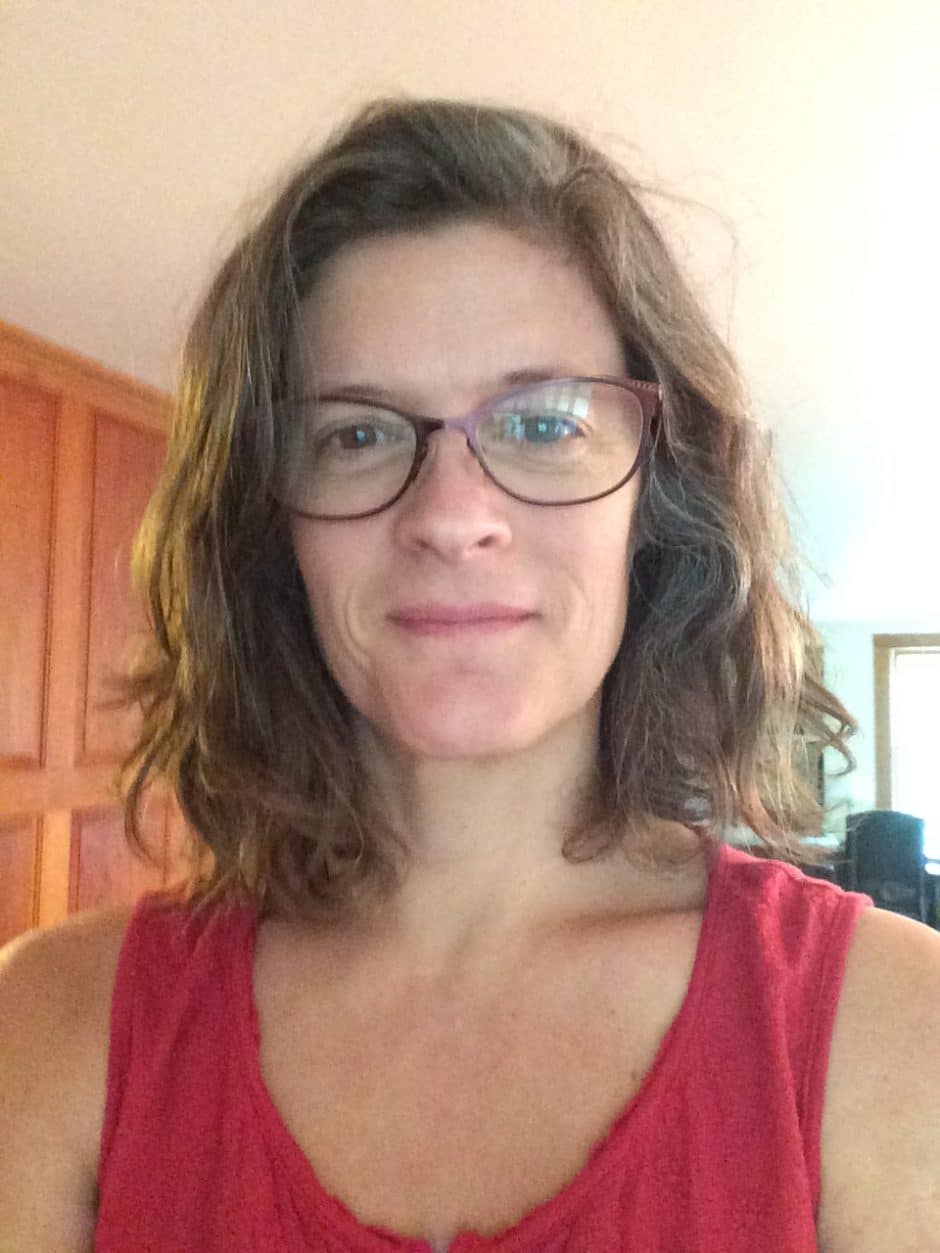By Fredricka R. Maister
“Sorry, girls, but the car won’t start so I can’t drive you to the pool today,” Mrs. Gilbert told Joanne and me that hot summer morning. The date, forever rooted in my memory: August 8th, 1961.
I may have been a clueless 12-year-old kid, but I instantly suspected Mrs. Gilbert was lying. I didn’t believe for a second that her car had mechanical problems. Besides, she could have used her husband’s car. Dr. Gilbert was working in his home medical office, his car sitting unused in the driveway.
I don’t know why, but I could just feel that something catastrophic had happened or was about to happen, something unspeakable. Why else would Joanne and I have had to stay cooped up inside all day, cut off from the sunny outside world?
Strange as it may seem from today’s vantage point, my dread-filled focus and feelings that day centered on nuclear annihilation, World War III, the end of the world. As a baby boomer growing up during the Cold War, I could not forget the “duck and cover” drills we regularly practiced during the school year. Crawling under my desk, my arms covering my head, I would silently wait, contemplating what death would feel like in a nuclear blast while still hoping for the “All Clear” bell to sound.
Even though I never heard any news reports or air raid sirens warning us to seek refuge in a fallout shelter, that doomsday consciousness haunted me all day at Joanne’s. Of course, I kept my thoughts to myself; Joanne would have laughed at me had I told her we were going to be blown to smithereens.
I had slept at Joanne’s house the night before, the latest in a succession of sleepovers at friends’ houses since my 54-year-old father had suffered his first heart attack three weeks before. While my sister, who was four years younger than I, stayed at home with Mom, I was passed around “like a hot potato” from friend to friend. I couldn’t remember when I last slept in my own bed; I sometimes wouldn’t see my mother and sister for days.
Physically ousted from my home, I was kept out of the loop on the latest medical updates about my dad’s condition. On the rare times I was there, I would eavesdrop on my mom talking on the phone with family and friends. That’s how I found out my dad had suffered two heart attacks and was still in the Intensive Care Unit at the hospital.
I once cornered my mother in her bedroom, my need to know the truth about my dad trumping any upset I might cause her. “Is Daddy going to die?” I blurted to which she responded with an evasive “We hope not.” I never asked again.
For the first time in my life, I felt utterly alone and abandoned, but no one seemed to notice or care. I found myself pretending that my home life was normal, and that my dad would soon be discharged from the hospital. No one ever sat me down and explained just how precarious his medical condition was.
I recall Leslie, another friend I stayed with during my father’s hospitalization, telling me one night before we went to bed, “Let’s pray for your dad.” I didn’t comprehend why we needed to pray when his condition didn’t seem life-threatening. The possibility that he might die eluded me then and during my stay at Joanne’s house.
In retrospect, I don’t think I consciously connected the dots between Mrs. Gilbert’s “lie” and my father’s health status. I was too obsessed with being obliterated by an atom bomb.
Joanne and I passed that endless day playing board games and Solitaire. I kept watching the clock for the hours to pass, but time stood still as my anxiety spiked. I needed to be with my mom and sister when the bomb was going to drop, but I had to wait until Joanne’s parents could drive me home that evening.
***
An ominous quiet filled the car. Although I looked forward to seeing my family, the anxiety and dread that had surged inside me all day only intensified. When Dr. Gilbert didn’t turn the car into the street leading to my house but proceeded to my uncle’s home where Mrs. Gilbert said the family had gathered, I felt my heart sink into the pit of my stomach. Why was my family gathering anywhere? Why weren’t my mom and sister at home? I suddenly realized that the end of the world I had anticipated had been nothing but a figment of my imagination. All my foreboding had related to an inexplicable inner knowing that my father had died.
By the time we arrived at my uncle’s home, I could no longer deny my new “fatherless” reality. As I raced up the steps to the door where my uncle was already waiting for me, Mrs. Gilbert called out, “ Honey, be strong.”
Finally, privy to the truth, I learned that my father had died at 8 o’clock that morning. His nurse had just turned on the television. When she turned around to say something to him, he had already succumbed to a massive heart attack that ended his life.
And, just as I suspected, Mrs. Gilbert had lied about the car. She and my mother had spoken after Dad passed that morning and decided I should be kept away from the pool to avoid running into someone who might say something about his death.
***
That fateful August day back in 1961 has left an indelible impression on my memory and my psyche, more so than my dad’s funeral the following day, which I barely remember. A few days after his funeral, my mother sent me away, not to mourn but to have fun at the Jersey Shore where my cousins had a bungalow. I was never asked if I wanted to go; I know I would have preferred to stay at home. For over a week as I rode the ocean waves and biked the boardwalk, I, the expert at the “pretend” game, acted as if nothing out-of-the-ordinary had happened.
Unresolved feelings of anger and abandonment associated with the weeks before and after my dad’s abrupt passing followed me into adulthood with an emotional vengeance. Even now, more than 50 years later, my emotions often feel raw and palpable and I can’t seem to let them go. Whenever I hark back to those feelings in sessions with my therapist, she tells me that their grip on me keeps me stuck in the past, unable to embrace the present and move forward into the future.
She reminds me that the intentions of family members and friends like Mrs. Gilbert were all well meaning. In the 1950s and 60s, the priority, as a society, was to shield children from the trauma of a loved one’s death. There was little recognition that children were emotionally sturdier than they appeared and could handle the truth.
***
I recently had an honest talk with my family about that turbulent time and its emotional impact on my life. As I expected, my sister justified my mother’s decisions. “I was in day camp then. Mom was at the hospital with Daddy all day. She couldn’t leave you alone at home to fend for yourself. You were only 12-years-old. As a mother, I would have done the same thing.”
I assumed my nephew, whom I call “my soul child” because our emotional temperaments are usually in sync, would be more sympathetic to my side in our family drama. Instead, he told me that although it might be cathartic for me to tell the story from my “angry” perspective, I should put myself in “Grandma Bea’s shoes at that time.”
The need to empathize with my mother, who bore the brunt of my anger, has not been a new concept for me. I just never felt motivated to re-visit that part of my past without the resentments and bitterness I’ve been dragging around for decades. However, since my heart-to-heart sharing with my family, not to mention the emotionally mellowing and wising up that seems to occur as one ages, I’ve felt a shift in attitude, a possible readiness to extricate myself from all that psychological baggage. To that end, my nephew’s words “to put myself in Grandma Bea’s shoes at that time” resonated, flashing me back in time.
I see my 45-year-old mother, grappling with the reality of sudden widowhood, alone among her friends dealing with the death of her spouse and the father of her young children. Unlike today, there were no how-to books, self-help articles or support groups; as a woman conditioned to hiding her innermost feelings, seeking professional help was never an option.
Unsupported by the 1950s-1960s culture bent on protecting children from parental illness and death, my mother was muddling through as best she could. In fact, when I eventually confronted her decades later about her “hurtful” behavior, she apologized, explaining “I was just doing what I thought was best for you.” I had no doubt that her remorse was sincere, but I still held onto my grievances, unable to cut her some slack.
Despite the blame and anger I have felt towards my mother, now deceased for over a decade, I have never ceased to stand in awe of her strength and resilience in surviving the death of my father. His sudden passing not only left her a widow but a widow without money. Our family’s financial status took a sharp downturn to the point of bankruptcy. My mother sold our lovely house and we moved into a cramped rental apartment she could only describe as “indescribable” in another part of town where my sister and I had no friends. Mom had to go to work immediately. She had nursing credentials, but the pay was low and the shifts long.
In a matter of a few months, I watched my mother morph from a dependent housewife into a struggling breadwinner who would single-handedly raise two daughters—no mean feat for a single mom. I might add that those two daughters, despite the trauma of losing a father at a young age, matured into high-functioning, responsible and independent women. For that, I credit my mother and am most grateful.
***
I have always been a firm believer that people, places and things appear in your life, when the desire to heal is greatest. Such was the case when I came across this quote in an inspirational book I read each morning: “Forgiving is not about forgetting, it’s letting go of the hurt.”
I’d never encountered that quote nor heard of its author, Mary McLeod Bethune (1875-1955) who, according to the National Women’s History Museum, “…became one of the most important black educators, civil and women’s rights leaders and government officials of the twentieth century.”
The timing could not have been more appropriate as the quote matched up with my growing willingness to let go of the hurtful emotions of my past. Had Mary McLeod Bethune’s inspiring words caught my attention for a reason? After more than 50 years, could it be time to finally forgive Mom?
THE END
When I finally was ready and able—emotionally and creatively–to address my dad’s death in my writing some 15 years later, that fateful day back in August 1961 became the inspiration for my poem, “To My Father.”
TO MY FATHER
Bells of doom
rang in the day.
World War 3, I thought
being a child of the 50’s.
Something was out of tune
silencing all gay songs.
Even time trudged by
like dead weight falling
each plunge—
a dirge of doom.
Why a shroud
over the sun
this day—
until,
Grown-ups’ tears
later revealed the truth to bear:
The bells had tolled for you
at 8:00 am
while my eyes were just opening
to the prospect of a new day—
your doomsday.
Fredricka R. Maister is a freelance writer, formerly of New York, now based in Philadelphia, whose personal essays have been published in a variety of print and online publications, such as The Baltimore Sun, Miami Herald, Chicago Tribune, New York Jewish Week, Jewish Journal of Greater Los Angeles, the Forward, Big Apple Parent, The Writer, OZY. She has also appeared in the anthologies, ‘The Man, Who Ate His Book: The Best of ducts.org, Volume II and Wising Up Press’ View from the Bed/View from the Bedside.
Anti-racist resources, because silence is not an option
~~~~~~~~~~~~~~~~~~~~~~~~~~~












